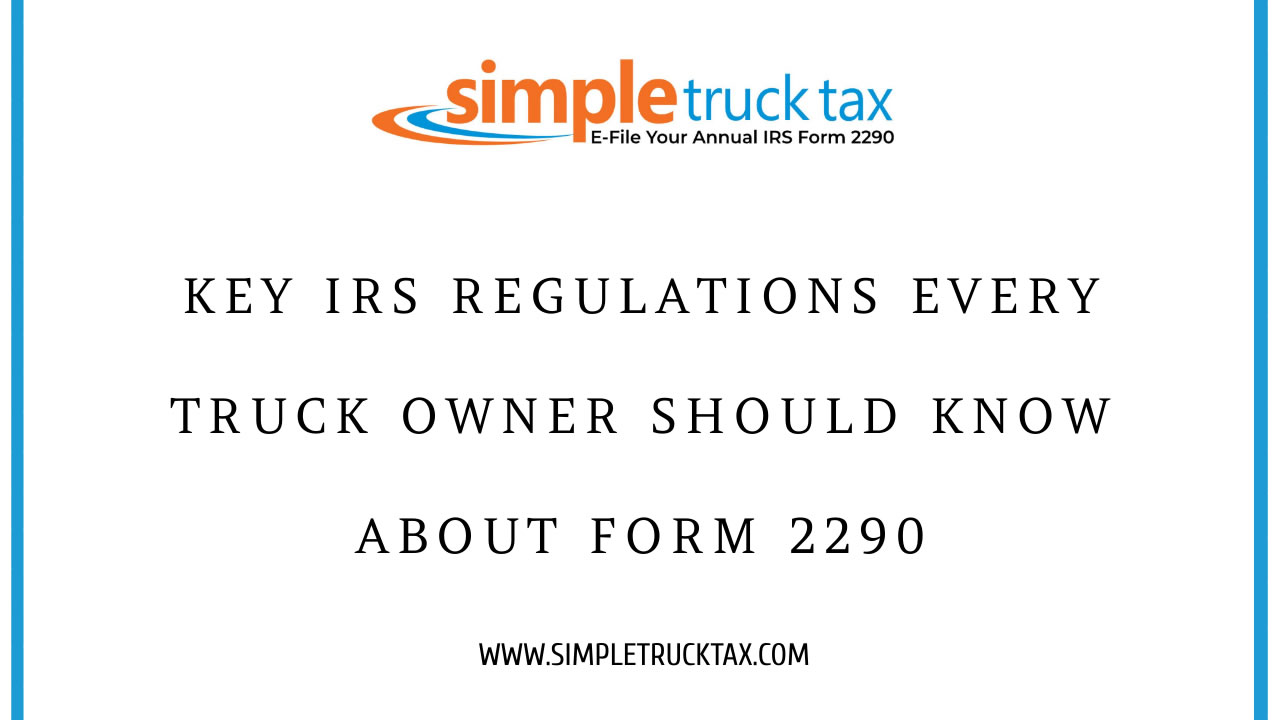
Key IRS Regulations Every Truck Owner Should Know About Form 2290
The ownership as well as the running of a heavy highway vehicle have its own responsibility especially in terms of taxes. One of the most important tax forms that truck owners must know is Form 2290, also known as Heavy Highway Vehicle Use Tax Return. Understanding the regulations by IRS concerning this form is imperative to ensure that you comply with it and avoid penalties. We are going to address key IRS regulations that every truck owner should be aware of about Form 2290.
What is Form 2290?
Form 2290 is an Internal Revenue Service (IRS) tax form used for reporting and paying the Heavy Vehicle Use Tax (HVUT). This tax applies to highway motor vehicles weighing more than 55,000 pounds. The tax revenue collected from Form 2290 funds infrastructure projects on highways in United States.
Who Must File Form 2290?
Truck owners operating heavy vehicles weighing over 55,000 pounds are required to file Form 2290. Among such users are individuals who are sole proprietors or companies and other organizations which use them on public highways. Even if they do not use it throughout year, they should have filed their forms at least for any part year when it was in operation.
When Should I File My Form 2290
Form 2290 has to be filed annually by IRS for the period beginning July1 through June30 of next year. The due date for filing returns will always fall on August31 each year while those with new vehicles within a given period should fill out these forms latest on last day of next month since when vehicle was first put into service.
How Do I File My Form 2290
The filing method can either be electronic or paper Filing. E-filing is highly recommended by IRS because it’s done quickly hence enables one obtain stamped Schedule1which serves as proof payment. Those filing 25 or more vehicles must file electronically. To e-file, you can use an IRS-approved e-file provider.
Penalties and Late Payments
Not submitting form as required by law or not making payment for HVUT attracts significant penalties as well as interest charges. The late filing fee is 4.5% of total tax due per month for up to five months while late payment penalties will be at 0.5% per month with monthly interests accrued at a rate of .054%.
Exemptions and Suspensions
Some vehicles may either be exempted from HVUT or be given a suspension on their taxes. These include vehicles that will travel under 5000 miles (7500 miles if agricultural vehicle) during an entire tax period as long as they qualify for suspension then their owners should still go ahead and fill out form 2290 but indicate that it has been suspended on the form itself.
Recordkeeping Requirements
Truck owners must keep copies of Form 2290 filings for a minimum of 3 years after the date that tax is due or paid, whichever is later. These should include filed copies of Form 2290, Schedule 1 and proof of payment.
Every truck owner operating heavy vehicles must comply with IRS regulations on Form 2290. If you know who has to file, when it must be done, how it can be filed, ways to pay penalties and exemptions you won’t break the law and let your money go down the drain. Keep accurate records and consider e-filing for a smoother and quicker process. It’s better to hire an expert if you are in doubt so as not to violate any IRS requirements concerning Form 2290.
Note: For more information, visit IRS website